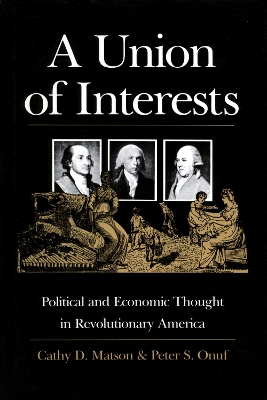American Political Thought
1 total work
From the onset of the Revolution in 1776 to the inauguration of the federal government in 1789, the American political culture was transformed. The movement for an effective continental republic is here linked to the groundswell for development and economic freedom set off by the Revolution. A Union of Interests reconstructs the discourse of American federalism, a discourse grounded in the debate over the role of government in the regulation of the economy.
Cathy Matson and Peter Onuf integrate analyses of economic ideas and interests with many of the critical problems facing the union after the war such as jurisdictional disputes, threats of secession, and new prospects for frontier settlement. The revolutionary ideology that had justified the creation of sovereign states under the Articles of Confederation seemed increasingly ""artificial"" in light of the pressing need to create a ""natural,"" extended republic that would be truer to the changing circumstances of the American people. The authors demonstrate that the movement for the Constitution drew upon increasingly popular political-economic ideas that sought to reconcile the apparent conflicts between a national interest and the ""enlightened"" self-interest of citizens. A pivotal chapter argues that the Constitutional Convention was itself both a product of this broad public discussion about America's future and a contribution to it in which the founders debated the limits to which they should compromise their distinct goals to fit this emerging vision.
Cathy Matson and Peter Onuf integrate analyses of economic ideas and interests with many of the critical problems facing the union after the war such as jurisdictional disputes, threats of secession, and new prospects for frontier settlement. The revolutionary ideology that had justified the creation of sovereign states under the Articles of Confederation seemed increasingly ""artificial"" in light of the pressing need to create a ""natural,"" extended republic that would be truer to the changing circumstances of the American people. The authors demonstrate that the movement for the Constitution drew upon increasingly popular political-economic ideas that sought to reconcile the apparent conflicts between a national interest and the ""enlightened"" self-interest of citizens. A pivotal chapter argues that the Constitutional Convention was itself both a product of this broad public discussion about America's future and a contribution to it in which the founders debated the limits to which they should compromise their distinct goals to fit this emerging vision.
